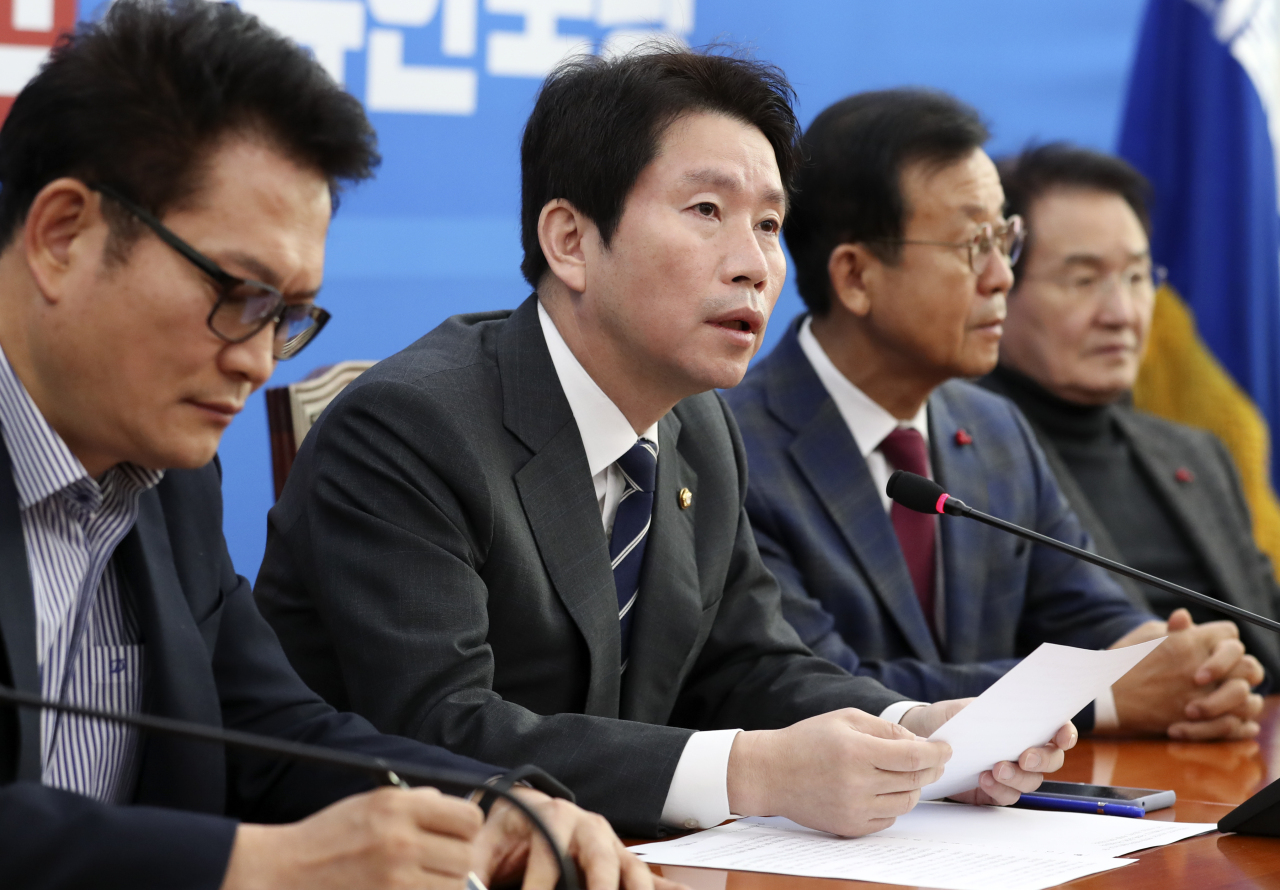Ruling party vows ‘strong, emergency action’ to pass key bills at parliament
By YonhapPublished : Nov. 30, 2019 - 14:00
The ruling Democratic Party said Saturday it‘ll start taking “strong, emergency action” to have key bills passed at the parliament, in response to the main opposition party’s threat to start a filibuster to block votes on them.
DP Rep. Lee In-young, the party‘s floor leader, made the remark during a meeting of party leaders at the National Assembly, which followed an attempt by the Liberty Korea Party on Friday to use a filibuster to prevent votes on fast-track bills on electoral reform and a corruption probe unit.

“I think we’ve reached the point where we can no longer try to reach a compromise,” Lee said. “In order to preserve the National Assembly and democracy, we have no choice but to respond with resolute determination based on principle and forcibly suppress the LKP‘s attempt to block votes on the bills.”
Lee apologized to people who would rather see the return of dialogue and compromise in the parliament and added: “In response to the anti-democratic and treacherous act (by the LKP), we’ll engage in strong, emergency action. We‘d like to ask people for their full support.”
Lee said the LKP’s attempt to shut down the National Assembly “failed completely” and said it wasn‘t an attack just on the parliament but on the people of the country as well.
A filibuster involves lawmakers speaking for extended periods as a way to prevent a parliamentary vote or delay the passage of a bill.
The LKP faced scathing public criticism, since the filibuster would affect a host of bills linked to people’s lives, including the revision to the road traffic act to strengthen children‘s safety in school zones.
The LKP is playing hardball, demanding the cancellation of the electoral reform bill and the proposal to set up a new agency to investigate corruption involving high-ranking officials.
“Now it’s the LKP‘s turn to pay the price for holding the people hostage,” Lee said.
The filibuster was abolished in 1973, then reintroduced in 2012, when the National Assembly law was revised. It was designed to prevent physical scuffles among lawmakers over the passage of bills. (Yonhap)








![[KH Explains] How should Korea adjust its trade defenses against Chinese EVs?](http://res.heraldm.com/phpwas/restmb_idxmake.php?idx=644&simg=/content/image/2024/04/15/20240415050562_0.jpg&u=20240415144419)











![[Today’s K-pop] Stray Kids to return soon: report](http://res.heraldm.com/phpwas/restmb_idxmake.php?idx=642&simg=/content/image/2024/04/16/20240416050713_0.jpg&u=)